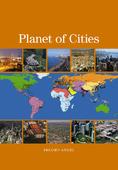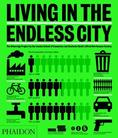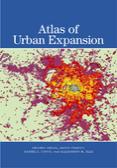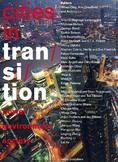rural areas welfare energy regulation Communication Community città storica urban policies social practices premio letteratura urbanistica urbanization knowledge periodic news superplaces sprawl representation large scale plans & projects adi information technology urban growth events central places newsletter waterfronts & harbors housing
Planet of Cities
Angel Shlomo
Cambridge, 2012 | ISBN 9781558442450
The book puts into question the main tenets of the familiar containment paradigm, also known as smart growth, urban growth management, or compact city, that is designed to contain boundless urban expansion, typically decried as sprawl. It examines this paradigm in a broader global perspective and shows it to be deficient and practically useless in addressing the central questions now facing expanding cities outside the United States and Europe.
In its place S. Angel proposes to revive an alternative 'Making Room Paradigm' that seeks to come to terms with the expected expansion of cities, particularly in the rapidly urbanizing countries in Asia and Africa, and to make the minimally necessary preparations for such expansion instead of seeking to contain it. This paradigm is predicated on four propositions:
1. The expansion of cities that urban population growth entails cannot be contained. Instead we must make adequate room to accommodate it.
2. City densities must remain within a sustainable range. If density is too low, it must be allowed to increase, and if it is too high, it must be allowed to decline.
3. Strict containment of urban expansion destroys the homes of the poor and puts new housing out of reach for most people. Decent housing for all can be ensured only if urban land is in ample supply.
4. As cities expand, the necessary land for public streets, public infrastructure networks, and public open spaces must be secured in advance of development.
The companion volume, Atlas of Urban Expansion, was also authored by Lincoln Institute visiting fellow S. Angel with Jason Parent, Daniel L. Civco, and Alejandro M. Blei. The main objective is to increase understanding and help residents, policy makers, and researchers around the world come to terms with the expected global urban expansion in the coming decades.
CONTENTS
• List of Illustrations
• Foreword, Gregory K. Ingram
Introduction and Four Propositions
1. Coming to Terms with Global Urban Expansion
2. The Inevitable Expansion Proposition
3. The Sustainable Densities Proposition
4. The Decent Housing Proposition
5. The Public Works Proposition
Part One The Urbanization Project
6. Urbanization in Historical Perspective
7. The Geography of World Urbanization
8. The Global Hierarchy of Cities
Part Two The Study of Global Urban Expansion
9. The Evidence: New Maps, New Metrics, Old Theory
10. Global Urban Land Cover and Its Expansion
11. The Persistent Decline in Urban Densities
12. From Centrality to Dispersal
13. The Fragmentation of Urban Landscapes
14. The Pulsating Compactness of Urban Footprints
15. Urban Land Cover Projections, 2000–2050
16. Urban Expansion and the Loss of Cultivated Lands
Conclusion
17. Making Room for a Planet of Cities
• Acknowledgments
• References
• Photograph Credits
• Index
• About the Author
• About the Lincoln Institute of Land Policy
ABOUT THE AUTHOR:
Shlomo Angel teaches the History and Theory of Planning at the Wagner School in New York. He also teaches a similar course at the Woodrow Wilson School of Public and International Affairs at Princeton University, New Jersey. He is currently the principal investigator in a global study of urban expansion that has been financed by the World Bank, the National Science Foundation, NASA, and lately the Lincoln Institute of Land Policy.
ABOUT LINCOLN INSTITUTE OF LAND POLICY:
The Lincoln Institute of Land Policy is a leading resource for key issues concerning the use, regulation, and taxation of land. Providing high-quality education and research, the Institute strives to improve public dialogue and decisions about land policy. As a private operating foundation whose origins date to 1946, the Institute seeks to inform decision making through education, research, policy evaluation, demonstration projects, and the dissemination of information, policy analysis, and data through our publications, Web site, and other media. By bringing together scholars, practitioners, public officials, policy makers, journalists, and involved citizens, the Lincoln Institute integrates theory and practice and provides a nonpartisan forum for multidisciplinary perspectives on public policy concerning land, both in the U.S. and internationally.




Planum
The Journal of Urbanism
ISSN 1723-0993
owned by
Istituto Nazionale di Urbanistica
published by
Planum Association
ISSN 1723-0993 | Registered at Court of Rome 4/12/2001, num. 514/2001
Web site realized by ChannelWeb & Planum Association | Powered by BEdita 3





